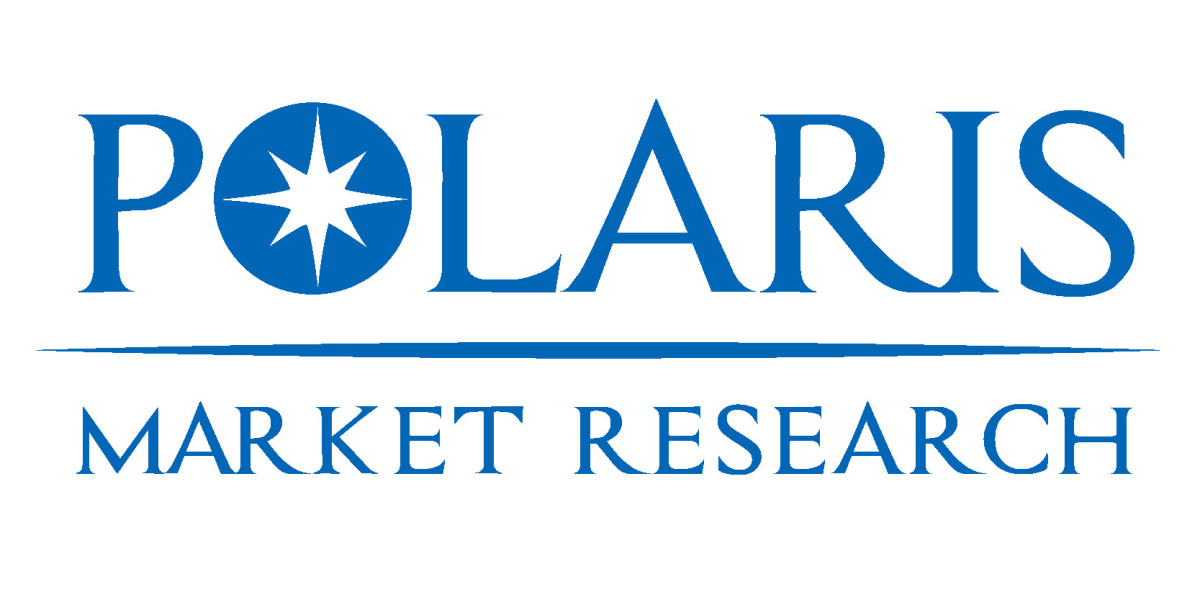In Vitro Diagnostics Market Overview
The global in vitro diagnostics market was estimated to be worth USD 80.02 billion in 2024. The market is anticipated to expand at a CAGR of 6.7% between 2025–2034, reaching USD 152.62 billion by 2034 from USD 85.21 billion in 2025.
In vitro diagnostics (IVDs) are medical tests conducted on biological samples outside the human body, often using test tubes or lab equipment. The term ‘in vitro’ translates to ‘in glass’ in Latin, indicating that these tests are performed in a laboratory setting rather than directly within the body. These tests help detect diseases, conditions, and infections, allowing healthcare professionals to make informed decisions about diagnosis, treatment, and prevention. IVDs play a crucial role in healthcare by providing accurate and timely results, which are essential for making informed decisions about patient care.
A few examples of IVDs in the in vitro diagnostics market include genetic tests, blood tests, COVID-19 tests, urinalysis, and pregnancy test kits. They provide essential information for screening, disease progression monitoring, and predicting treatment responses. IVDs also contribute to public health by enabling early disease detection and prevention, thus mitigating the spread of infectious diseases. By identifying individuals most likely to respond to specific therapies, IVDs facilitate personalized and targeted treatment, a cornerstone of precision medicine.
The global demand for IVDs is growing, particularly due to increased awareness around early disease detection and chronic disease management. Innovations in molecular diagnostics, including next-generation sequencing (NGS), are driving the market by enabling more accurate and individualized diagnostics. Additionally, the shift toward point-of-care testing (POCT) is expanding the reach of IVDs beyond traditional lab settings. This trend creates opportunities for manufacturers to develop versatile diagnostic solutions for use in hospitals, clinics, and even at home.
In Vitro Diagnostics Market Trends
Rise of Molecular Diagnostics
Molecular diagnostics are a type of in vitro diagnostics that analyze genetic material (DNA or RNA) to detect diseases, predict their course, or monitor treatment effectiveness. Molecular diagnostics utilizes techniques like PCR, NGS, and microarrays to analyze DNA and RNA, enabling the detection of specific sequences or mutations. They are becoming a major trend in the in vitro diagnostics market, driven by increased demand for early and accurate disease detection, personalized medicine, and advancements in molecular techniques like real-time PCR and next-generation sequencing. This shift is particularly pronounced in infectious disease surveillance and cancer diagnostics. Molecular diagnostics are gaining prominence due to their ability to enable early diagnosis and personalized treatment.
Increasing Preference for Rapid Diagnostic Tests (RDTs)
Rapid diagnostic tests are gaining traction in the in vitro diagnostics market due to factors like increased patient preference for point-of-care testing, growing demand for rapid solutions, and advancements in technology. The demand for RDTs is particularly high in areas like infectious disease diagnosis and early disease detection, where timely results can significantly impact patient outcomes. RDTs provide a timely way to diagnose and manage diseases, leading to faster treatment decisions and improved patient outcomes.
Growing Adoption of Wearable Health Devices
Wearable health devices are being increasingly used in in vitro diagnostics, offering non-invasive and real-time monitoring of various physiological parameters. This shift is driven by the need for more effective, patient-friendly, and trustworthy healthcare solutions, particularly for chronic conditions requiring continuous monitoring. Wearables empower patients to actively manage their health conditions remotely, fostering better patient engagement and adherence to treatment plans. Wearables can detect subtle physiological changes indicative of early disease stages, allowing for timely intervention and improved patient outcomes.
In Vitro Diagnostics Market Drivers
Growing Usage of Next-Generation Sequencing (NGS)
Next-generation sequencing (NGS) is significantly driving the in vitro diagnostics market growth, offering enhanced capabilities and expanding market scope. NGS, a high-throughput DNA sequencing method, has largely superseded traditional sequencing methods and revolutionized IVD. Its use in various IVD applications, including cancer testing, genetic testing, and infectious disease testing, is accelerating market expansion. NGS applications extend beyond traditional IVD areas, such as non-invasive prenatal testing (NIPT) and targeted sequencing. NGS also enables the identification of genetic variations that can be used to personalize treatment strategies, leading to more effective therapies and improved patient outcomes.
Rise of Digital Pathology
Digital pathology is driving the in vitro diagnostics market by enhancing diagnostic precision, efficiency, and access to expertise, ultimately improving patient care outcomes. It achieves this through advancements like whole-slide imaging, AI-powered image analysis, and telepathology, enabling faster and more accurate diagnoses. Digital pathology allows for detailed examination of tissue samples, biomarkers, and genetic information, contributing to more accurate diagnoses, especially in areas like oncology and infectious disease testing. It integrates with electronic health records, genomic profiling, and clinical decision support systems, enabling personalized treatment strategies tailored to individual patient profiles. In addition, it provides a platform for integrating AI into diagnostics, enabling computer-aided diagnosis, image analysis, and biomarker detection.
Increased Focus on Genetic Testing
IVD tests, including genetic testing and companion diagnostics, provide crucial insights for tailoring medical treatment to individual patients based on their unique genetic makeup, lifestyle, and other factors. This approach is leading to the development of targeted therapies and avoiding unnecessary treatments or adverse reactions. Genetic testing also plays a crucial role in early disease detection, allowing for timely intervention and improved patient outcomes. Thus, the rising focus on genetic testing is fueling the in vitro diagnostics market development.
In Vitro Diagnostics Market Segment Insights
The in vitro diagnostics market is basically segmented based on technology, product & service, specimen, application, end user, and region.
In Vitro Diagnostics Market Evaluation by Technology Insights
By technology, the in vitro diagnostics market is segmented into clinical chemistry, coagulation & hemostasis, immunoassays, hematology, microbiology, molecular diagnostics, urinalysis, chromatography & mass spectrometry, and others. The immunoassays segment held the largest share of the in vitro diagnostics market because of its strong adoption and preference compared to other diagnostic approaches. This prevalence can be linked to the dependability and precision of immunodiagnostic methods, which encompass tests like enzyme-linked immunosorbent assays (ELISA) and lateral flow assays. These tests offer quick results with little sample preparation, enhancing their efficiency for clinical applications where prompt diagnosis is essential.
In Vitro Diagnostics Market Assessment by Application Insights
Based on application, the market is segmented into allergy diagnostics, autoimmune diseases, blood screening, blood group typing, bone & mineral disorders, cardiology, coagulation testing, drug monitoring & testing, infectious diseases, oncology, endocrinology, genetic testing, and others. The infectious diseases segment led the in vitro diagnostics market owing to the increasing incidence of infectious diseases globally. These diseases encompass COVID-19, HIV, hepatitis, influenza, and sexually transmitted infections, which significantly fuels the need for in vitro diagnostics tests and the escalating issue of multi-drug-resistant pathogens.
In Vitro Diagnostics Industry Developments
In February 2025, ABL Diagnostics started the manufacturing and distributing a comprehensive range of UltraGene PCR tests after acquiring them from its parent business, Advanced Biological Laboratories. These tests, which include more than 100 pathogens, are intended to support infectious disease diagnosis across diverse clinical settings.
In January 2025, QIAGEN got U.S. FDA clearance for their QIAstat-Dx Gastrointestinal Panel 2 Mini B&V, a specialized targeted syndromic test for viral and bacterial gastrointestinal infections. The company is planning a strategic product launch aimed at strengthening both inpatient and outpatient diagnostics.
In Vitro Diagnostics Market Key Players
Key market players are significantly investing in research and development to broaden their product offerings. They are also engaging in various strategic actions to broaden their global presence, with significant market advancements such as new product introductions, partnership agreements, mergers and acquisitions, increased investments, and collaborations with other entities.
Some of the major players in the in vitro diagnostics market include:
- Abbott
- Agilent Technologies, Inc.
- Becton, Dickinson and Company
- bioMérieux SA
- Bio-Rad Laboratories, Inc.
- Charles River Laboratories
- Danaher Corporation
- Hoffmann-La Roche Ltd.
- Qiagen
- Quest Diagnostics Incorporated
- QuidelOrtho Corporation
- Siemens Healthineers AG
- Sysmex Corporation
- Thermo Fisher Scientific, Inc.








